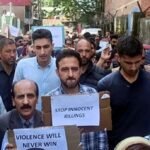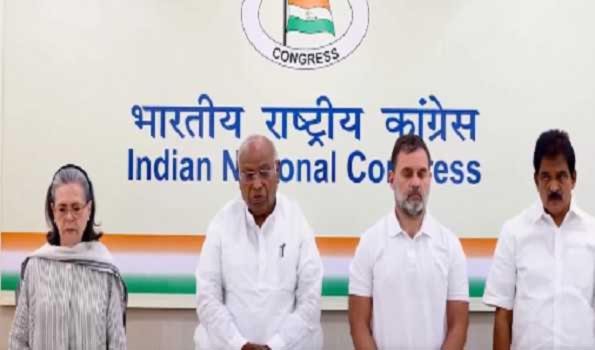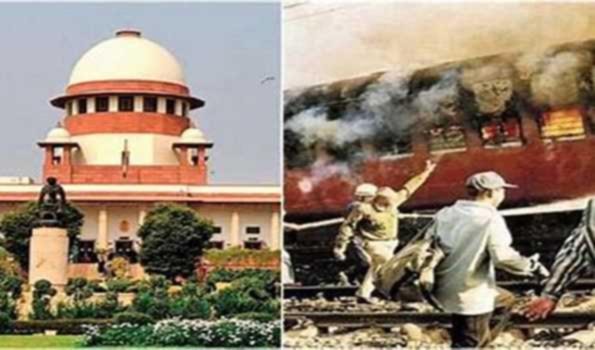Johannesburg/New Delhi, Feb 21 (UNI) Differences must not become disputes, disputes should not become conflicts, and conflicts should not lead to a bigger breakdown, External Affairs Minister S Jaishankar said at the G20 Foreign Ministers’ Meeting in Johannesburg, adding that there are lessons from the last few years for the group to reflect on.
In his remarks at the G-20 Session ‘Discussion on the Global Geopolitical Situation’ on Thursday, the EAM also said that peace and stability in the Middle East region is vital for the entire world, and regarding Ukraine he said that India has long advocated dialogue and diplomacy,
He termed the G20 as an important expression of the world’s growing multi-polarity.
“It captures the diversity of our interests, cultures and outlook. For this very reason, its ability to harmonize viewpoints is key to advancing the global agenda. However, the polarization of recent years has created visible stress and distorted priorities. What we could do was, to somehow, find enough common ground to safeguard this institution. Today, the imperative is to go beyond that,” he said.
While the accumulated challenges of the Covid pandemic, conflict situations, financial pressures, food security and climate concerns remain, there is also the current anxieties about concentrated supply chains, weaponization of trade and finance, and transparency of data flows, he remarked.
“Looking ahead, differential progress on AI and EV, space, drones or green hydrogen have clear geo-political implications,” the EAM said.
He laid out India’s position on some of the pressing concerns of the world that need urgent resolution.
“On the Middle East, we welcome the Gaza ceasefire and hostage release, support humanitarian assistance, condemn terrorism, and advocate a two-state solution.
“Maintaining the ceasefire in Lebanon and ensuring an inclusive Syrian-led, Syrian-owned solution are important. Peace and stability in the region is vital for the entire world.”
“Ensuring maritime security in and around this region is also essential. Indian naval forces have contributed to that in the Arabian Sea and Gulf of Aden. Restoring normal maritime commerce remains a priority,” he said, referring to the threat of attacks on maritime shipping by the Iran-backed Houthis.
“Regarding the Ukraine conflict, we have long advocated dialogue and diplomacy. Today, the world expects that parties concerned deal with each other to end the war,” he said, in reference to the Trump administration pushing for talks between Russia and Ukraine to resolve the conflict, which the Biden administration had ignored.
Referring to other ongoing conflicts, he said: “There are other conflicts too – DRC, Sudan & Sahel are such examples – that do not get the attention they deserve. This must change.”
“In the Indo-Pacific, it is important that international law – especially UNCLOS 1982 – is respected. Agreements entered into must be observed. And there must be no room for coercion,” the EAM said, in reference to China’s hegemonistic position in the South China Sea and beyond.
“As G20 members, we also must recognize that multilateralism itself lies deeply damaged. The UN and its Security Council is often grid-locked. Just getting it back to work is not enough; its working methods and representation must change. More plurilateralism is required to plug global deficits.
“International cooperation itself must be less opaque or unilateral. And the global agenda cannot be narrowed down to the interests of a few,” he remarked.
“The very purpose of diplomacy – and a group like G-20 – is to find common ground and create the basis for collaboration. We can do so best by observing international law, respecting the UN Charter and preserving institutions.
“Differences must not become disputes, disputes should not become conflicts, and conflicts should not lead to a bigger breakdown. There are lessons from the last few years for all of us to reflect on. But equally, an experience to draw upon as we seek to lead the world to a better place,” he added.
In a post on X, the EAM said regarding his address:
“Spoke at the G20 FMM session on Global Geopolitical Situation.
“Highlighted that the global geopolitical situation remains difficult and G20’s ability to harmonize viewpoints is key to advancing an agreed agenda.
“Presented India’s position on the Middle East, maritime security, Ukraine conflict, Indo-Pacific and UN reforms.
“Geo-politics is a reality, as is national interest. There are lessons from the last few years for all of us to reflect on. But equally, an experience to draw upon as we seek to lead the world to a better place.”











